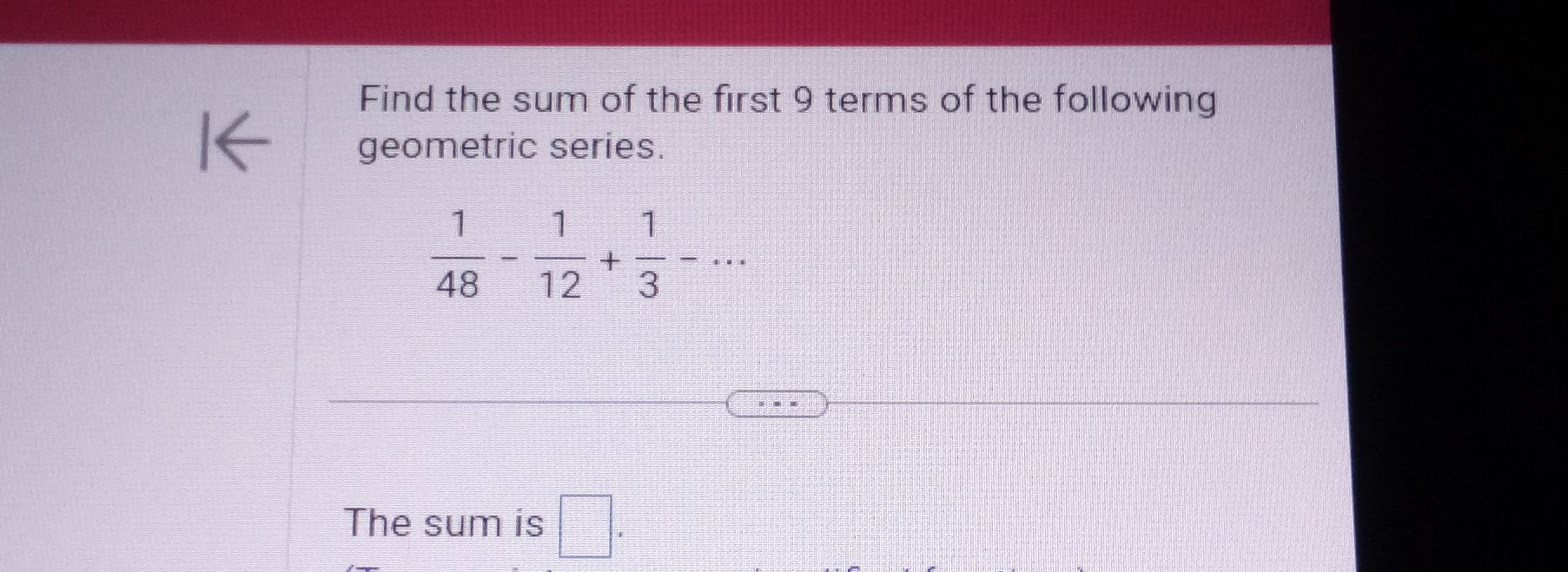Full solution
Q. Find the sum of the first terms of the following geometric series.The sum is .
- Identify terms and ratio: Identify the first term and the common ratio of the geometric series.The first term is .To find the common ratio , divide the second term by the first term: .
- Use sum formula: Use the formula for the sum of the first terms of a geometric series: , where is the number of terms.Here, , , and .
- Calculate : Plug the values into the formula: S_9 = \frac{\(1\)}{\(48\)}\left(\frac{\(1\) - (\(-4\))^\(9\)}{\(1\) - (\(-4\))}\right)\.
- Substitute and simplify: Calculate \((-4)^9. Since is even and the exponent is odd, the result will be negative: .
- Add numbers in parentheses: Substitute the value into the sum formula: .
- Substitute sum into formula: Simplify the expression: .
- Multiply numerator: Add the numbers inside the parentheses: .
- Divide by denominator: Substitute the sum into the formula: .
- Final sum: Multiply the numerator: (rounded to decimal places).
- Final sum: Multiply the numerator: (rounded to decimal places).Divide by the denominator: (rounded to decimal places).
- Final sum: Multiply the numerator: (rounded to decimal places).Divide by the denominator: (rounded to decimal places).The sum of the first terms of the geometric series is approximately .
More problems from Operations with rational exponents
QuestionGet tutor help
QuestionGet tutor help



